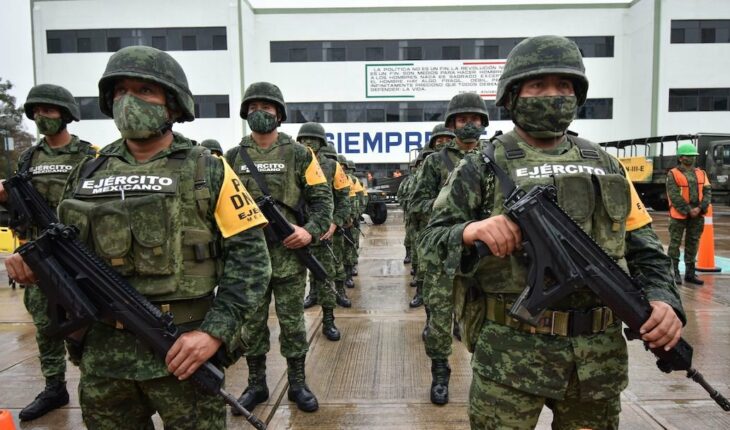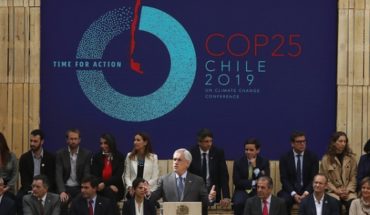The Ministry of National Defense (Sedena) and the National Intelligence Center (CNI) promoted a reform to punish with jail persons who, without prior authorization, access, know, possess or manipulate information classified as national security.
According to emails obtained by the hacktivist group Guacamaya, on September 9, 2020, a representative of the CNI sent the legal area of Sedena a proposal to reform the Federal Criminal Code and the National Code of Criminal Procedure.
On September 29 of the same year, Senator Ricardo Monreal presented an initiative in the same direction, with paragraphs similar to those found in the communications of both institutions, although so far it has not advanced.
Sedena’s draft and the CNI provides for prison sentences and fines for those who, inter alia, possess, access, or know information identified as national security, as well as investigations, operations and equipment for the generation of intelligence of national security instances.
Read more: #SedenaLeaks: in the Tierra Caliente of Guerrero, the narco negotiates with politicians and the military; coexists in parties and football games
In addition an aggravating factor is included when it hinders or prevents the effective attention of any of the risks or threats national security provided for in the laws, in the National Risk Agenda or in the National Development Plan.
The document proposes to add an article 140 bis to the Federal Criminal Code, corresponding to the chapter on “Sabotage”. Although it does not detail the years of imprisonment that would be given to those who committed this crime – these data are only mentioned as “from x to and years in prison” – it does establish that the penalty would be deprivation of liberty.
In addition, as it is a crime against the security of the nation, those who committed it could receive informal preventive detention.
Find out: 49 opposition senators challenge before the Court that the National Guard pass to the Sedena
As we tell you in this other note, informal pre-trial detention is issued “automatically” when a person is charged with any of the offences covered by article 19 of the Constitution (such as intentional homicide, enforced disappearance, trafficking in persons or corruption)..
According to the explanatory statement, this proposal would help to “end corruption throughout the public administration”, in addition to pointing out that improper disclosure can compromise the operation of strategic infrastructure, essential activities and the operation of institutions to act against the threats and risks facing the country, such as organized crime.
In accordance with this communication, it would be President Andrés Manuel López Obrador who would present this initiative to Congress, but this did not happen. On the other hand, Senator Ricardo Monreal introduced the reform to the corresponding codes, with paragraphs identical to those agreed between the Army and the CNI.
See also: Sedena Leaks: since 2020, analysis warned of danger of collapse in the Cancun-Tulum section of the Mayan Train
The representative of the legal area of the Sedena approved this reform initiative on September 22, 2020, although he stressed that it should be added that the sanction would also apply to anyone who “possesses” such documents.
He also insisted that the proposal contain that the punishment would be doubled if the conduct involves “risks or threats” to the National Development Plan (PND), which frames, among other points, social development programmes and the security strategy.
“In relation to the working meeting carried out with staff of this Secretariat; on the occasion of the criminal proposal ‘Affectation to National Security information’ and its inclusion as a crime that merits informal preventive detention; to exchange views in the preparation of the final proposal, I would like to inform you that the draft agreed at the meeting in accordance with the annexed table is valid.“says one of the emails.
Monreal introduced similar initiative, but is detained in the Senate
Information available on the Senate’s information platform shows that on September 29, 2020, Moreno Senator Ricardo Monreal presented an initiative to reform the CPF and the CNPP —dated September 23, 2020—, which includes textual paragraphs of the communications between Sedena and the CNI.
This proposal specifies that the sanction will be two to twenty years in prison and a fine of one thousand to twenty thousand times the daily value of the Measurement and Updating Unit (UMA), although it could be doubled in the cases mentioned above.
The moreno senator’s proposal justifies the need to establish criminal sanctions against those who disclose, destroy or alter national security information and who violate the information reserve due to the “circumstances that the country is experiencing due to the leakage of organized crime in the institutions of all levels of government and being that an instrument of state destabilization.”
Image: Draft of Sedena and CNI vs initiative presented by Ricardo Monreal
Political Animal contacted Monreal’s team to know their position on this law, the context in which it was approved and whether the army participated in its elaboration. However, so far he has only responded that “it is pending an opinion” in the United Commissions of Justice; and Legislative Studies, Second.
This is not the first time that leaks from the Guacamaya group link the Army’s involvement with law-making. According to the Aristegui Noticias portal, Sedena was the original source of the reform that was approved in Congress to militarize the National Guard.
What we do at Animal Político requires professional journalists, teamwork, dialogue with readers and something very important: independence. You can help us keep going. Be part of the team.
Subscribe to Animal Político, receive benefits and support free journalism.#YoSoyAnimal





